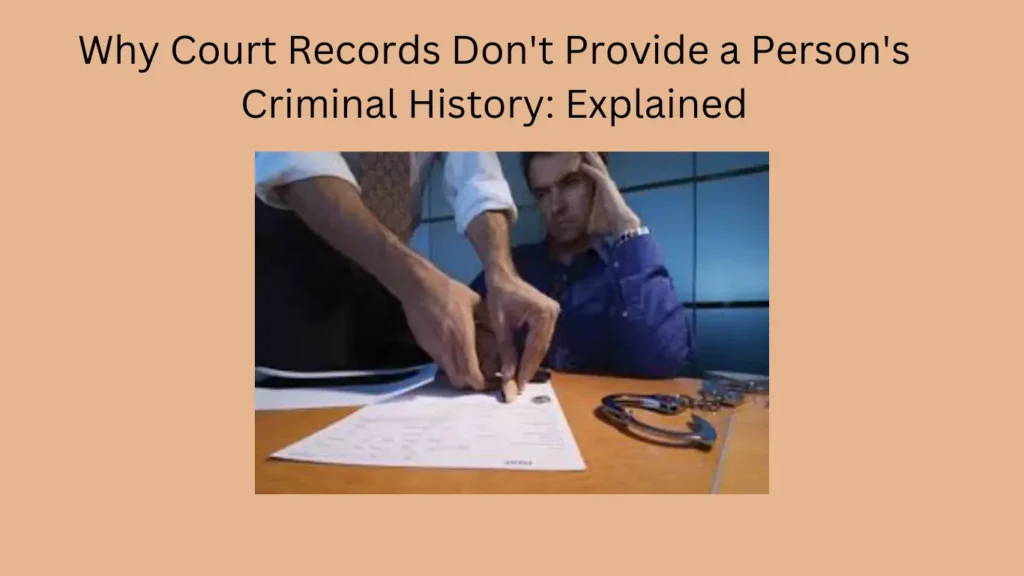Introduction
Court records are often misunderstood as comprehensive sources of a person’s criminal history. However, they primarily document legal proceedings related to civil matters, not criminal offenses. Understanding this distinction is crucial for creating helpful, reliable, people-first content.
1. Understanding Court Records
Court records are official documents that detail the proceedings and decisions of a court case. They include information about civil disputes, such as lawsuits over contracts, property, or family matters.
2. Limitations of Court Records in Providing Criminal History
While court records can indicate involvement in certain legal matters, they do not provide a complete picture of a person’s criminal history. Criminal records, which include arrests, convictions, and sentencing, are maintained separately by law enforcement agencies.
3. Accessing Criminal History Information
To access a person’s criminal history, individuals and organizations typically need to request a background check from the relevant law enforcement agency or state repository. This process varies by jurisdiction and may require specific authorization or a fee.
4. Importance of Accurate Information
It’s essential to understand the limitations of court records and seek out official criminal history information when necessary. Relying solely on court records for criminal history checks can lead to incomplete or inaccurate assessments.
5. Using Court Records Wisely
While court records may not provide a person’s full criminal history, they can still be valuable sources of information. They can reveal patterns of behavior, such as frequent legal disputes, that may be relevant in certain contexts.
Conclusion
Court records are valuable for understanding legal matters related to civil disputes but should not be relied upon as sources of a person’s complete criminal history. By recognizing the limitations of court records and seeking out official criminal history information when needed, individuals and organizations can make more informed decisions.
For further Inquires Contact Us
FAQs
Do court records include a person’s criminal history?
- No, court records primarily document legal proceedings related to civil matters, not criminal offenses.
How can I access a person’s criminal history?
- To access a person’s criminal history, you typically need to request a background check from the relevant law enforcement agency or state repository.
Why is it important to understand the limitations of court records?
- Understanding these limitations helps ensure that you seek out official criminal history information when necessary, avoiding incomplete or inaccurate assessments.
Can court records still be useful for assessing a person’s background?
- Yes, while court records may not provide a person’s full criminal history, they can still reveal important information about legal disputes and patterns of behavior.
What should I do if I need comprehensive background information on someone?
- If you need comprehensive background information, including criminal history, it’s best to request a background check from the relevant law enforcement agency or state repository.
